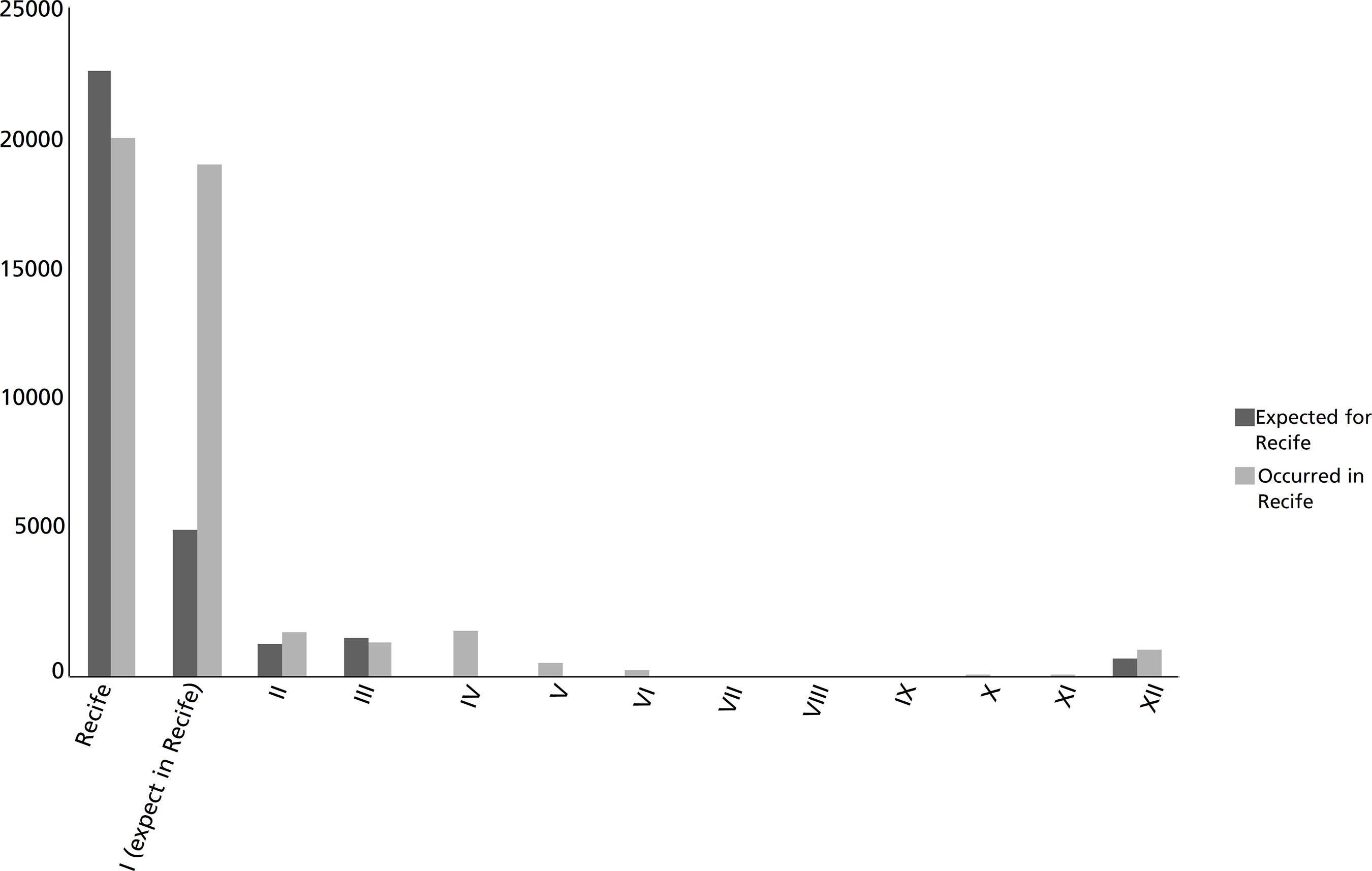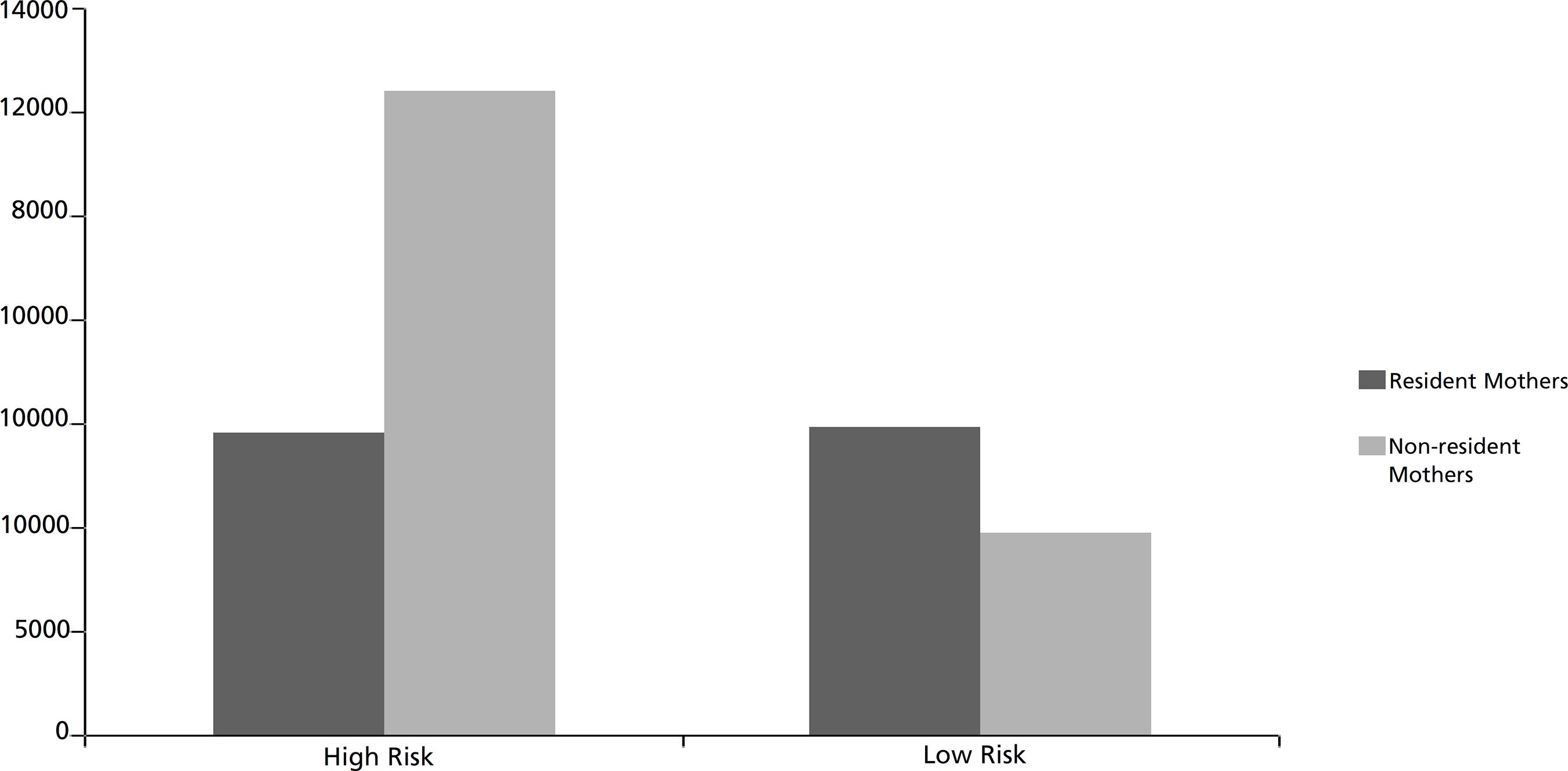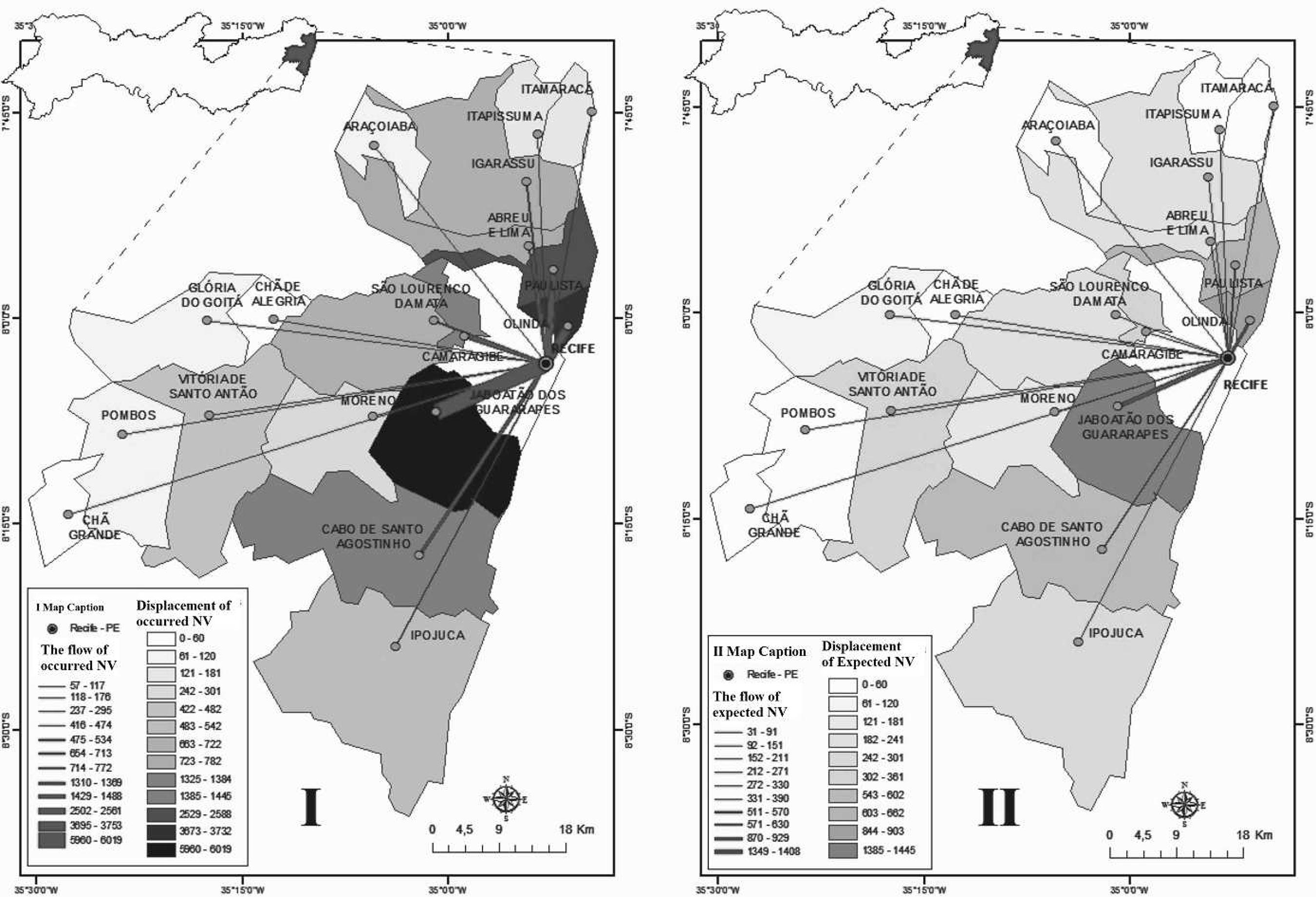Abstract
Objectives:
this study aims to evaluate parturition distribution of live-born children within the First Health Regional Administration (GERES I) in the state of Pernambuco, Brazil in 2012.
Methods:
live Birth Certificates were used to evaluate displacements between pregnant women's residential municipalities and birth localities. Flux maps were constructed to represent pregnant women transferred to Recife, and the estimated number of live-borns with high-risk and regular births was calculated for each municipality.
Results:
in 2012, only 50% of the births of live babies in the GERES I took place at the original residential municipality of the mother. In Recife, the number of childbirths was 1.5 times greater than expected for this year, with 56% representing non-residents. Eleven municipalities of the GERES I have maternity hospitals, however, none of these responded to the expected number of regular risk births.
Conclusions:
this disruption of the obstetric network leads to the disrespecting of women's right to know beforehand the place of childbirth and to create bonds with it. Municipalities perform fewer childbirths than expected, resulting in unnecessary transfers and the overloading of maternity hospitals in Recife.
Key words:
Birth; Regional health planning; Health services accessibility; Residence characteristics

 Fonte: SINASC/DATASUS, 2012.
Fonte: SINASC/DATASUS, 2012.
 Fonte: SINASC/DATASUS, 2012.
Fonte: SINASC/DATASUS, 2012.
 Fonte: SINASC/DATASUS, 2012.
Fonte: SINASC/DATASUS, 2012.
 Fonte: SINASC/DATASUS, 2012.
Fonte: SINASC/DATASUS, 2012.